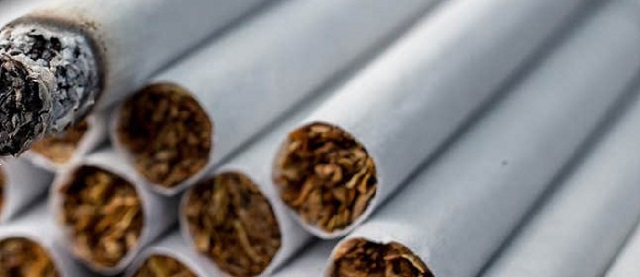
British American Tobacco Uganda, perhaps the country’s popular cigarette company on Sept.10, celebrated its 20th anniversary of its trading on the Uganda Securities Exchange.
Kampala, Uganda | JULIUS BUSINGE | But the company has been in operation in the country for more than 90 years. Its share price has since jumped from Shs1, 000, the Initial Public Offering price in 2000 to Shs30, 000 per share in 2020, signaling value addition to the shareholders investment.
“We have been able to offer sustained and superior value to our shareholders,” said Kirunda Magoola, the company’s newly appointed managing director in a virtual ceremony occasioned by COVID-19 that has limited interactions.
He revealed that the company is working on innovations to increase on their product portfolio in line with customer needs and international health standards.
BATU sells cigarette brands including Benson & Hedges, Embassy, Rex and Sportsman.
Keith Kalyegira, the chief executive officer at the Capital Markets Authority (CMA) and USE Chief Executive Officer, Paul Bwiso described BATU’s 20 years journey as successful in creating wealth to shareholders and the economy.
Bwiso, for instance, revealed that BATU paid Shs80 per share as dividend in its first year of listing on the exchange but that has since grown to an average of Shs400 per share per year – one of the highest on the market.
He said the company’s 100% dividend payment policy per year is the reason shareholders have consistently held onto their shares, and keeping the share price constant for almost the last five years.
Meanwhile, BATU Board Chairman, Elly Karuhanga, said the company is now embarking on a new journey of trading on the USE and contributing to the entire economy. It is possibly only BATU that pays most of its revenues to government as taxes compared to its shareholders.
For instance, the firm recorded Shs164.3bn in revenue in 2019 and its contribution to government revenue in form of excise duty, value added tax and corporation tax took a whopping Shs96bn. The shareholders remained with merely Shs15.7bn as net profit to share among themselves as dividends.
The company saw a similar trend in 2018, 2017 and 2016. In 2018, the tobacco firm recorded Shs154bn in revenue but the government took Shs90.5bn as tax, leaving shareholders with a paltry Shs13.7bn.
In 2017, it recorded Shs149.7bn revenue but the government snatched Shs86.5bn, with the investors remaining with only Shs12bn. This is in sharp contrast with the period prior to the enactment of the tough anti-tobacco law in 2015.
Nevertheless, the company has never been bowed on its mission to deliver innovative products to its consumers amidst a tough legal environment which saw it close its local leaf plant on Jinja road.
It is on this basis that Karuhanga and Magoola said the company could have achieved a lot more if there was no regulatory challenges relating to restrictions on the sale of tobacco products using the tobacco control law, passed in July 2015
Uganda’s tobacco law was in response to the world’s decision to limit distribution, sale and use of tobacco products in the market in order to minimise on the health related risks such as lung cancer.
However, the company’s executives said they would like to see a predictable tax regime for the tobacco industry as well as government stopping the inflow of illicit tobacco products in the country. Illicit tobacco trading causes a tax loss of approx.Shs30bn to government per annum.
“We are calling for stringent enforcement measures to support Uganda Revenue Authority by identifying the source of these products, enforcing penalties or fines and prosecuting those involved in illicit trade,” Magoola said.
One of the oldest shareholders, Henry Magino, said in a recorded video that he has confidence in those managing the company affairs and looks forward to earning more returns from his investments.
Kalyegira said BATU is one of the companies that has created wealth to shareholders – individuals and funds – since listing on the USE.
However, he said that the regulator would like to see more new shareholders or old ones buying more shares into the company to spread wealth from one –shareholder who holds a large 86.9% shareholding of the company.
He identified potential buyers as tobacco farmers, BATU employees and members of the public.
“CMA will ensure the market continues to attract investors through innovations for new products and a favorable regulatory environment,” he said.
BAT Uganda was the second company to list on the USE in 2000 following the divestiture of government in Uganda. A total of 4.9 million shares were offered at the IPO. The IPO was oversubscribed by 5% and attracted various retail and institutional shareholders. Its market capitalization stands at Shs1.5trillion. Its counter has traded over Shs28billion in turnover over the past 20 years.
****
 The Independent Uganda: You get the Truth we Pay the Price
The Independent Uganda: You get the Truth we Pay the Price




I want to know about the graph of price shares for the almost three past years
I want to know about the graph of price shares for almost three years back.